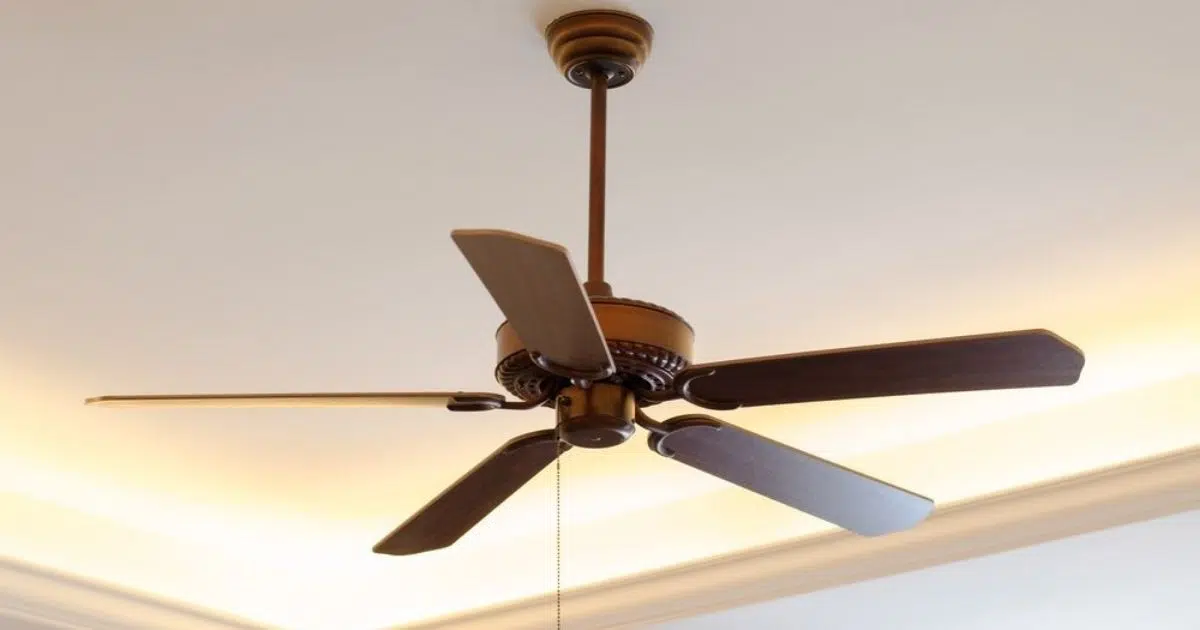Introduction
Ceiling fans are more than decorative fixtures—they’re powerful tools for comfort and energy efficiency. The secret lies in which way the blades spin. Switching directions depending on the season can help you feel cooler in summer, warmer in winter, and even cut down on energy bills.
Origin and Cultural Significance
Ceiling fans first became popular in the late 1800s, especially in warm, humid climates. Before widespread air conditioning, they were a household necessity. Today, they remain a symbol of practicality and sustainability, valued not just for comfort but also for their ability to lower energy consumption in an eco-conscious world.
Ingredients Quantity (Fan Settings by Season)
- Summer (Counterclockwise)
- Blades push air down.
- Creates a cooling “wind chill” effect.
- Reduces need for air conditioning.
- Winter (Clockwise at Low Speed)
- Blades pull cool air upward.
- Gently pushes trapped warm air near the ceiling back down.
- Helps heating systems work more efficiently.
Optional Additions
- Smart ceiling fan controllers for automatic seasonal adjustments.
- LED light kits for dual functionality.
- Remote controls or wall-mounted switches for easy blade direction changes.
Tips for Success
- Check airflow: Stand under the fan—if you feel a breeze, it’s in summer mode. If not, it’s circulating air gently for winter.
- Always turn off the fan before flipping the direction switch.
- Dust blades regularly so you’re not circulating debris with the airflow.
- Use the lowest speed in winter to avoid creating a draft.
Instructions
- Switch off the ceiling fan.
- Locate the small reversing switch on the motor housing.
- For summer, set blades to counterclockwise.
- For winter, set blades to clockwise.
- Restart and adjust speed to your comfort level.
Description
Changing the fan’s direction seasonally helps control airflow: in summer, it creates a refreshing breeze; in winter, it redistributes warm air that gathers near the ceiling. This simple adjustment boosts comfort while reducing reliance on heating and cooling systems.
Nutritional Information (Metaphorical)
- Energy savings: Up to 15% on cooling, 10% on heating
- Eco-impact: Lower carbon footprint
- Comfort rating: 5 stars year-round
- Cost efficiency: High—uses less power than HVAC systems
Conclusion
Your ceiling fan is more than a fair-weather friend. By adjusting its spin, you maximize its potential, making your home more comfortable and energy-smart across all seasons.
Recommendation
Check your ceiling fan’s direction at the start of each season. This small habit saves energy, money, and makes your living space healthier and more enjoyable.
Embracing Healthful Indulgence
Living well is about small, thoughtful choices. By using your ceiling fan wisely, you create a home environment that’s not only comfortable but also eco-friendly—allowing you to indulge in year-round comfort while embracing a lifestyle of healthful indulgence.
